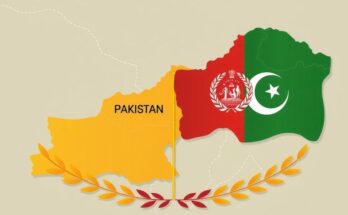Somalia’s President Hassan Sheikh Mohamud dismissed Defence Minister Abuldkadir Mohamed Nur following US pressure due to his ties with Turkey. Nur has been reassigned amid concerns about military cooperation and security against al-Shabab. Although US officials expressed dissatisfaction with Turkey’s influence, Turkish representatives maintained ties with Somalia would continue based on institutional cooperation.
Somalia’s President Hassan Sheikh Mohamud recently terminated Defence Minister Abuldkadir Mohamed Nur’s position amid US military lobbying. Nur is being reassigned to the Ministry of Ports, following indications that American support for Somalia’s fight against al-Shabab has been waning. Reports suggest that Nur’s increasing military, energy, and aerospace collaboration with Turkey has caused concern among US officials who prioritize ties with the United Arab Emirates in the region.
Under Nur’s guidance, Somalia and Turkey formalized a comprehensive agreement encompassing naval, trade, and defense aspects in February of last year. Although the specifics of the deal remain largely undisclosed, it reportedly empowers Turkey to safeguard Somali waters, assist in establishing a Somali navy, and explore energy resources. This partnership was particularly pertinent in light of Ethiopia’s naval agreement with Somaliland.
US military officials pressured President Mohamud to remove Nur due to apprehensions regarding coordination with American forces. The officials also requested access to the agreement signed in February, citing several discussions indicating increasing pressure throughout the year. Furthermore, US displeasure grew with Turkey’s initiative to build a spaceport in Somalia, which was interpreted as potentially facilitating ballistic missile tests.
Turkey’s recent deployment of Bayraktar Akinci drones to Mogadishu for combat against al-Shabab was reportedly the tipping point. A source noted that US officials communicated that failing to remove Nur could jeopardize their security cooperation with Somalia against the militant group. Earlier this month, the US embassy issued a warning regarding a potential al-Shabab attack, leading to flight cancellations by airlines such as Qatar Airways and Turkish Airlines.
Additionally, US President Donald Trump previously authorized airstrikes against Islamic State leadership in Somalia. Following this, funding for the elite Danab Special Forces unit faced reductions, prompting Somali Finance Minister Bihi Iman Egeh to announce the need for alternative funding strategies. A former commander of Danab expressed his support for the leadership change.
In contrast, Turkish officials attempted to minimize the ramifications of Nur’s dismissal on bilateral relations, affirming that Turkey’s collaboration with Somalia is based on institutional frameworks rather than individual ties. They underlined Turkey’s extensive investments in Somalia’s infrastructure and defense and affirmed hope for the continuation of counterterrorism support. Experts believe that future engagements will focus more on strengthening institutional frameworks to align with mutual interests.
The dismissal of Defence Minister Abuldkadir Mohamed Nur highlights the complexities of international relations in the Horn of Africa, especially amid US and Turkish interests. While his removal seems influenced by US concerns over military coordination and Turkey’s growing influence, officials indicate that bilateral relations between Turkey and Somalia will persist, concentrating on institutional ties rather than personal ones. The situation underscores the delicate balance Somalia must maintain in international partnerships while addressing internal security challenges.
Original Source: www.middleeasteye.net




